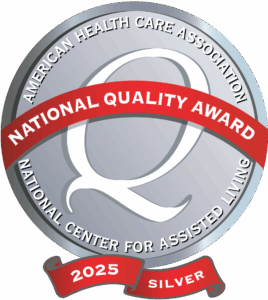Cholesterol is a waxy, fat-like substance that is found in all cells of the body as well as some foods like meat, poultry and full-fat dairy products. Our bodies, specifically our livers, make all the cholesterol they need and circulate it throughout the body, which helps us make some hormones, vitamin D and other substances that help us properly digest food.
Normal cholesterol levels are essential to our bodies’ normal functioning, however, higher levels of cholesterol in the blood can put us at risk for heart disease and heart attack. Too much cholesterol in the arteries can build up as plaque, which can slow or block blood flow altogether. This is most evident when the buildup occurs in the coronary arteries, when not enough blood can get through to the heart.
The Danger of High Cholesterol in the Elderly
Not all cholesterol is bad. There are three types of cholesterol or fat in the bloodstream, and while some can be dangerous if levels get too high, others can actually benefit the body. The different types of cholesterol include:
- LDL: Low-density lipoproteins are known as “bad” cholesterol as it clogs the arteries. The higher the level of LDL in your blood, the greater your chances are of getting heart disease. Levels above 70 mg/dl need to be actively treated.
- HDL: High-density lipoproteins are known as “good” cholesterol, and can help the body by attaching to the LDL, pushing it to the liver to be filtered out of the body. HDL levels should be at 60 mg/dl or higher.
- Triglycerides: Triglycerides are not actually cholesterol, but are a form of fat that needs to be monitored, as it can also clog arteries and damage the cardiovascular system. Levels should be kept below 150 mg/dl.
Seniors in particular need to pay attention to their cholesterol levels, as coronary heart disease is the number one cause of death among individuals age 65 or older. High cholesterol is caused by a variety of things, including foods with saturated fats or trans fats, food from animal sources like meat, cheese and eggs, being overweight and having low activity levels. This is why it is so crucial for seniors to live a healthy lifestyle. However, high cholesterol can also be hereditary, and your age and sex also play a role.
Improving Senior Heart Health
Cholesterol levels tend to peak around age 60, and when seniors maintain good health overall, the levels can start to decrease. If one is at higher risk for heart disease, taking measures to lower cholesterol is the best approach to preventing the risk for heart attack, stroke or peripheral vascular disease.
The best ways to lower cholesterol and improve senior heart health include living a healthier lifestyle overall. Avoid living a sedentary lifestyle; staying active can reduce blood pressure, aid in weight loss and lower the risk for diabetes. Add small changes to your daily habits; take the stairs instead of the elevator or park farther away from entrances, for example. Eating a heart healthy diet is also key to lowering cholesterol; studies have shown that seniors who improve nutrition by consuming lots of fruits, vegetables, whole grains and lean meats can decrease their risk for heart attack. If medication to reduce cholesterol is prescribed, make sure to take it as directed. Always consult a physician with any questions regarding how to lower cholesterol and keep your heart as healthy as possible.
For more information about American Senior Communities, please visit www.ASCSeniorCare.com.




